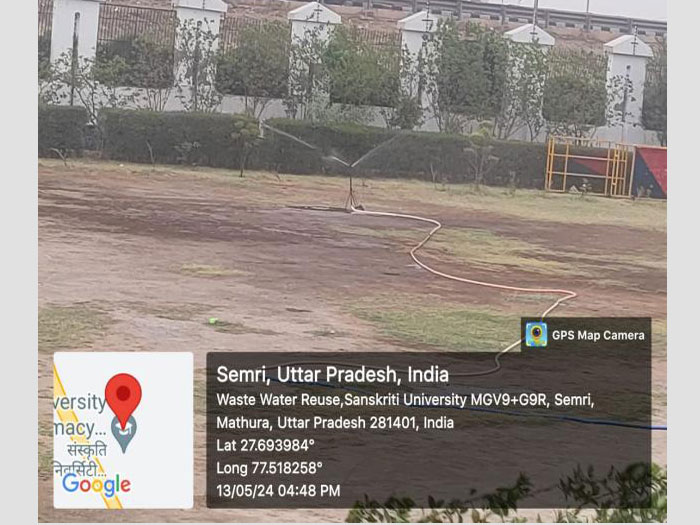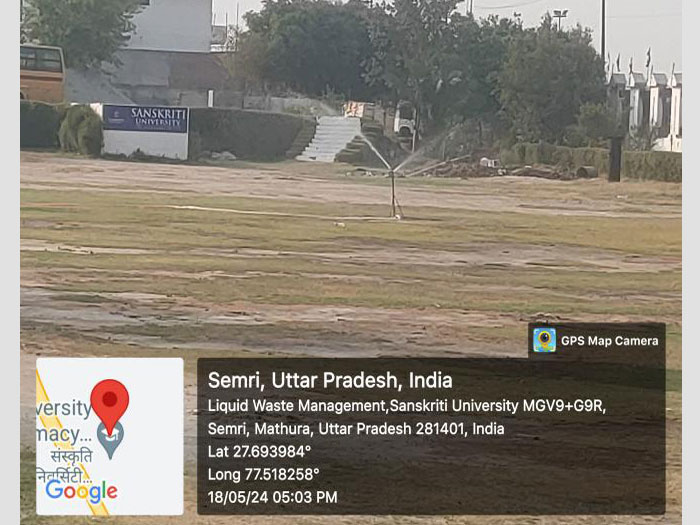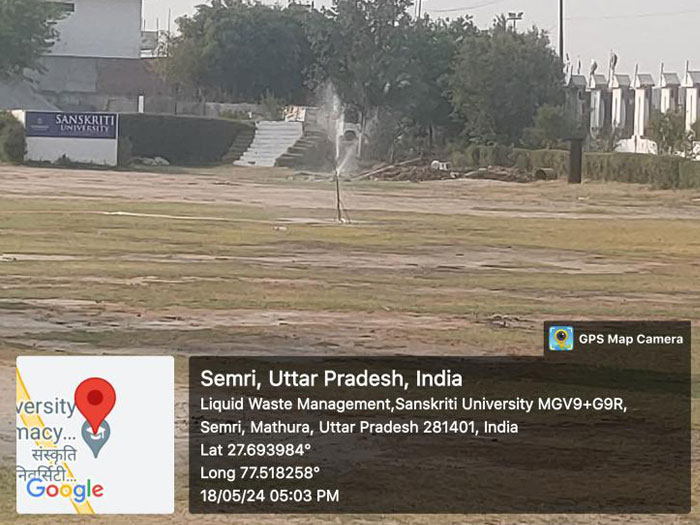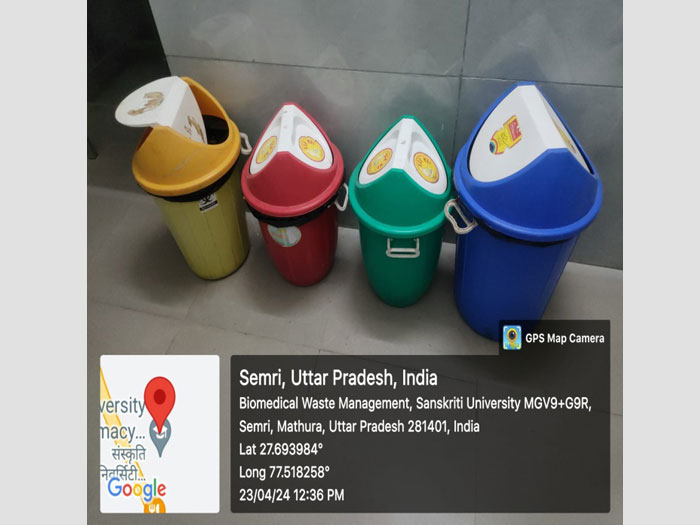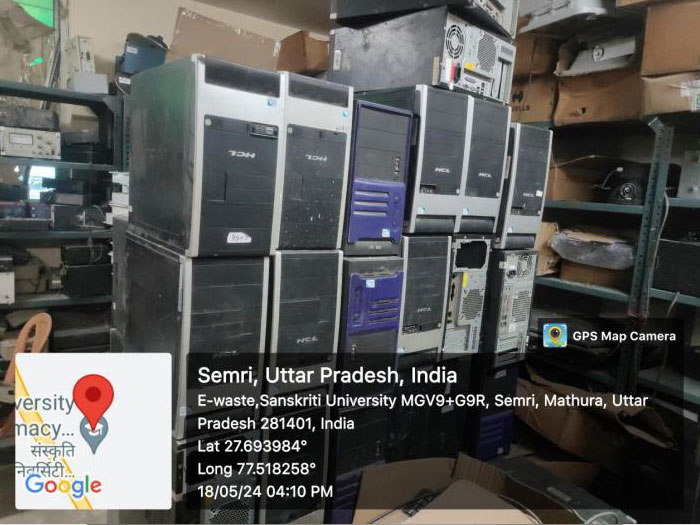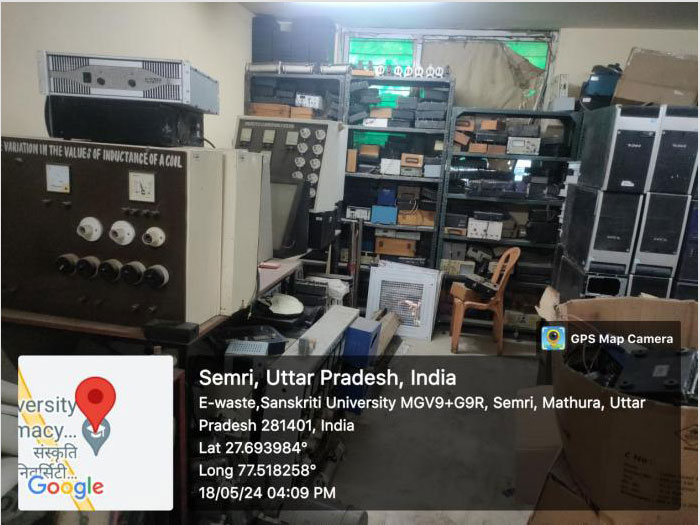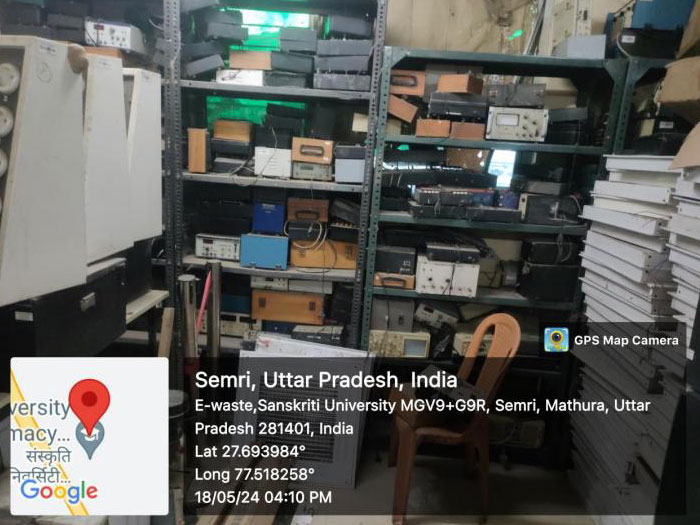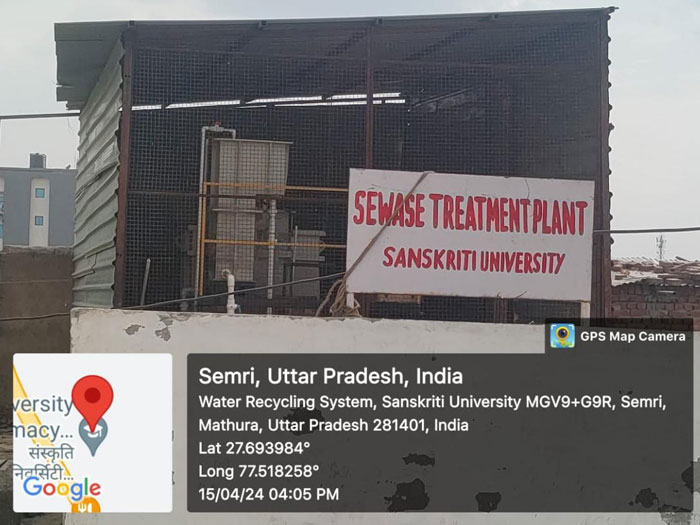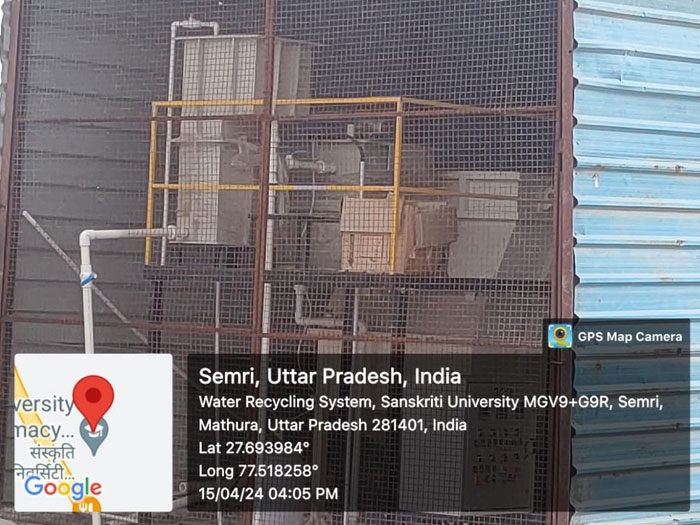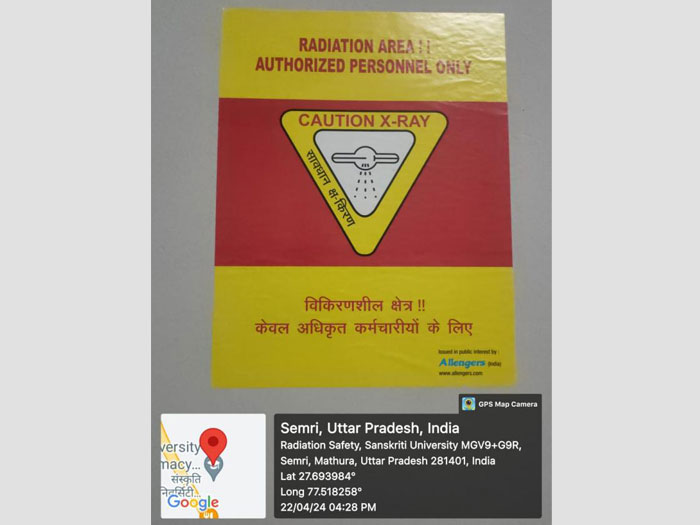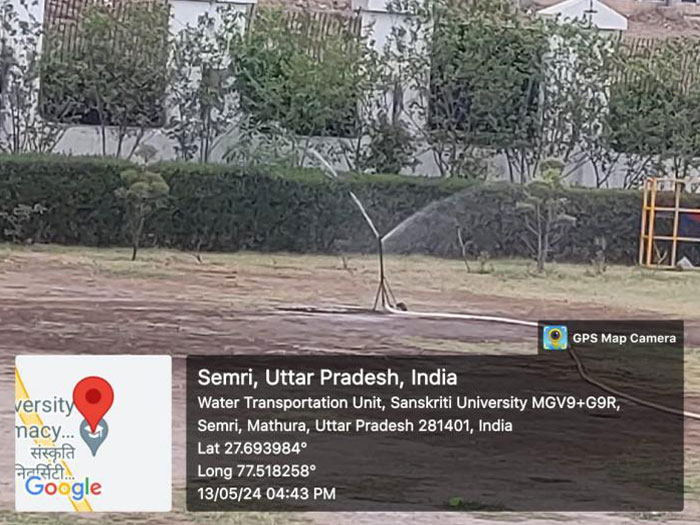
Waste Management Initiatives
The Institution has facilities for the management of the following types of degradable and non-degradable waste:
Solid Waste Management
At present, nearly 70 million tons per year of solid waste is being generated in the country which is expected to double in the next 10 years. Solid waste management is very important from the point of human health and environmental protection. University has taken several measures in the solid waste management generated on the campus. Number of office orders and circulars has been issued from time to time to create awareness of solid waste management. Series of activities have been undertaken in the university campus viz., environment protection, and disposal of waste, waste paper recycling etc. The model adopted for solid waste management includes waste collection, segregation, transportation; processing, disposal and burial at land fill site or dumping yard. To achieve this, bins have been installed at various places in the hostel, corridors, office premises, residential area, laboratories, farm, etc.
Agreement View
Liquid Waste Management
Liquid waste generated is collected separately and segregated from the solid waste. The liquid waste consisting of mainly toxic chemicals, acids being used in the laboratories and is dumped in the separate pits designed for the disposal. The area designated has been distanced from bore wells, water tanks, and other water bodies being used for irrigation.
Agreement View
Biomedical Waste
Biomedical waste is any liquid or solid waste containing infectious materials. Biomedical waste bins as per the codes have been procured and installed at our Hospital premises. Biomedical waste is collected on alternative days by the Rio-Green (India) Environ ASTS. The quantity of biomedical waste collected (as per segregation & color codes) from 01/01/2024 to 31/12/2024 and auctioned by the authorized agencies.
Agreement View
E- Waste Management
E- Waste contains metals, plastics, cathode ray tubes, circuit board, computer terminals and other parts, telephone sets, cables, CD, pen drives, etc. The E-waste so procured was auctioned to the authorized vendors.
Malik Associates to procure all the e-waste generated in the university. An exhaustive list of all the e-waste material generated in various departments and offices was made and was handed over to the agency.
Agreement View
Waste Recycling System
Recycling strategies have been put in place in the offices, classroom, hostel, dining halls, library, laboratory, residential area and the university has kept containers both for solid and liquid waste. In addition, litter and leaves and other plant parts are also collected and used for vermin composting and organic recycling.
In order to avoid any untoward effects and impacts of the liquid effluents, the University has established its own Sewage Treatment Plant (STP) which has the capacity of 20 KLD for the disposal of liquid effluent.
Agreement View
Hazardous chemicals and Radioactive Waste Management
Hazardous chemicals like acids, bases, chemical reagents, pesticides, herbicides, and toxic laboratory reagents are being mainly used in Schools of Agriculture, Pharmacy, Nursing, Medical and Allied Science, Ayurveda, Basic and Applied Science. The waste from the laboratory is collected separately pooled and disposed of as the protocol. However, university does not undertake any research related to radioactive material and hence there is no issue of disposal radioactive waste.
The University follows the UGC guidelines for procurement, storage, usage & disposal of hazardous chemicals & AERB guidelines for radioactive waste.
Agreement View


